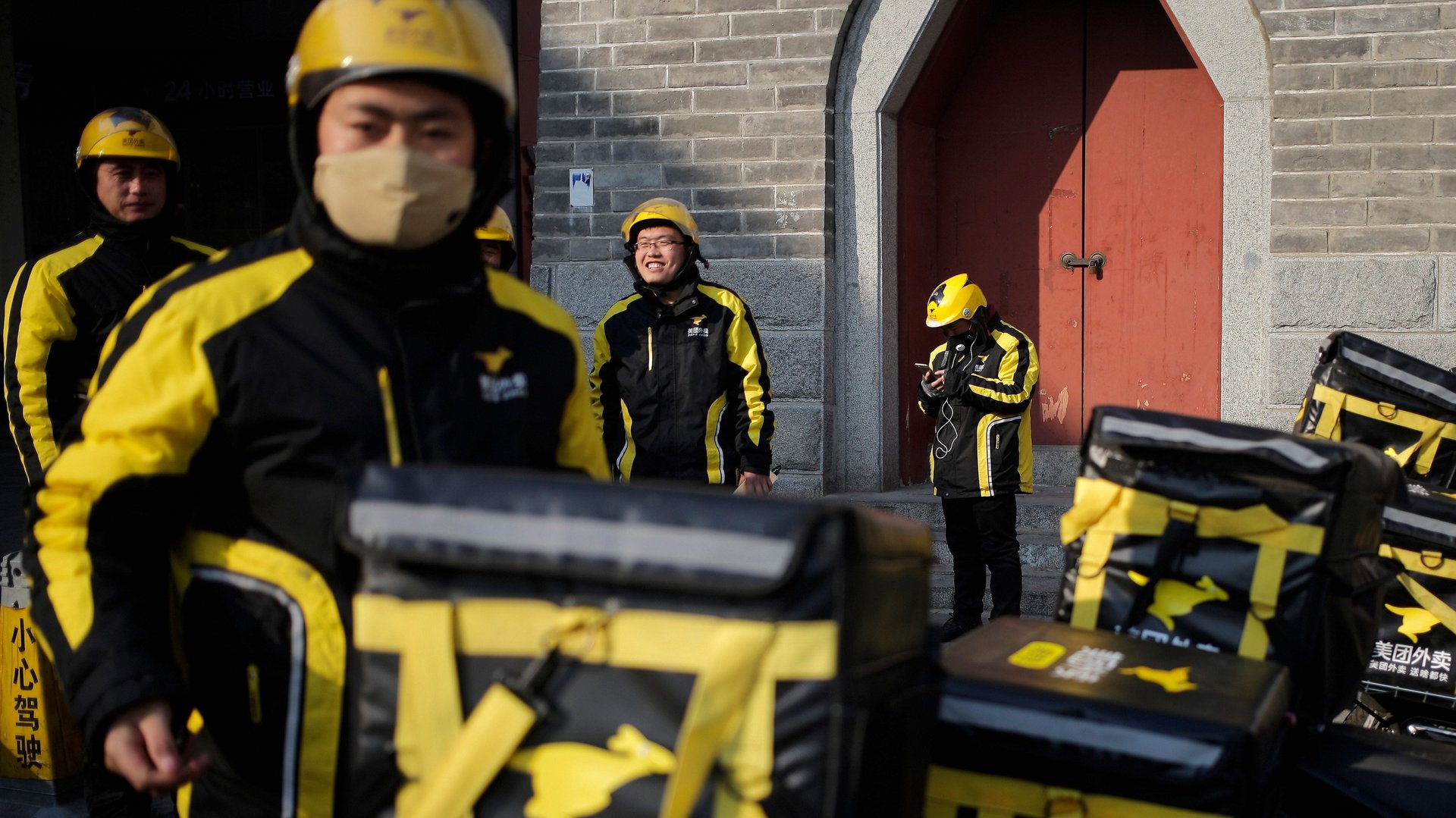Meituan’s CEO is in the hot seat over a classical Chinese poem about book burning
Jack Ma learned the hard way, and paid a hefty price for speaking out when Beijing suspended his Ant Group’s monster IPO following his criticism of regulators. Now, another prominent Chinese tech executive is having a hard time after posting and later deleting a poem seen by many as anti-establishment.


Jack Ma learned the hard way, and paid a hefty price for speaking out when Beijing suspended his Ant Group’s monster IPO following his criticism of regulators. Now, another prominent Chinese tech executive is having a hard time after posting and later deleting a poem seen by many as anti-establishment.
Wang Xing, the billionaire founder and CEO of Chinese food delivery giant Meituan, faces questions about whether he delivered a veiled criticism of the government with a classical Chinese poem he posted on social media platform Fanfou last week.
Written by a poet from China’s Tang dynasty (618-907), the poem is viewed by commentators as a merciless and sharp condemnation of Qin Shi Huang—the creator of China’s first unified empire the Qin dynasty (221-206 BC). The poem mocks the emperor’s crackdown on scholars and his burning of books, which was a way for Qin Shi Huang to consolidate his power. In the end, the regime was overthrown by non-intellectuals, the poem says (link in Chinese).
A subtle criticism of Beijing or a reference to competition?
Wang’s post quickly stirred controversy in China, where people wondered whether the poem was an expression of his discontent towards Beijing’s antitrust scrutiny, which has targeted Chinese tech giants including Meituan. In addition to large fines for Alibaba, Chinese regulators also launched an antitrust investigation into Hong Kong-listed Meituan late last month.
Wang deleted the poem on Sunday (May 9), claiming that he was commenting on how the company’s potential competitors might not have come under its radar yet. “A poem from the Tang dynasty inspired me a lot lately: the Qin dynasty was afraid of scholars but Liu Bang and Xiang Yu, whose uprising overthrew the Qin regime, didn’t have much education. This has reminded me that the most dangerous competitors are often not those expected,” wrote Wang on social media, according to a translation by Bloomberg. A Meituan spokesperson confirmed the authenticity of the deleted post and the clarification, but said the company has no further comment.
Despite Wang’s explanation, the episode has been picked up by many Chinese news outlets and is being enthusiastically discussed by Chinese internet users. “At this crucial timing of the antitrust investigation, it is indeed inappropriate for Wang to post that poem, which could stir too many thoughts from people…Although Wang’s original meaning is to comment on competition in the tech industry, such obscure writing could lead investors to tremble with fright,” said Ge Long, the founder of Chinese financial information service provider Ge Long Hui.
Plunging shares
Investors have been on high alert about any movement from Chinese tech execs, after Alibaba co-founder Jack Ma’s sharp criticism of financial regulators reportedly led to Beijing’s suspension of Ant’s $37 billion IPO in November. Under Xi Jinping, private companies are feeling ever greater pressure to show loyalty to the Party. Any expression of dissent, some of which was tolerated in previous years, could now lead to grave consequences, observers say.
On Monday, shares of Meituan closed down 7.1% to wipe out around $16 billion off the firm’s market cap. While it is hard to make a firm connection between the plunge and the poem, what could have also worried investors is Beijing’s implication that its scrutiny of Meituan, or Chinese tech giants in general, is far from over.
Last month, a Beijing official from the city’s labor department worked as a Meituan delivery worker for a day. His complaints about the difficulty of earning delivery fees have gone viral online and prompted Meituan to promise to improve working conditions. This is seen by many as a sign indicating the authorities’ potential future scrutiny of tech firms’ treatment of gig workers.